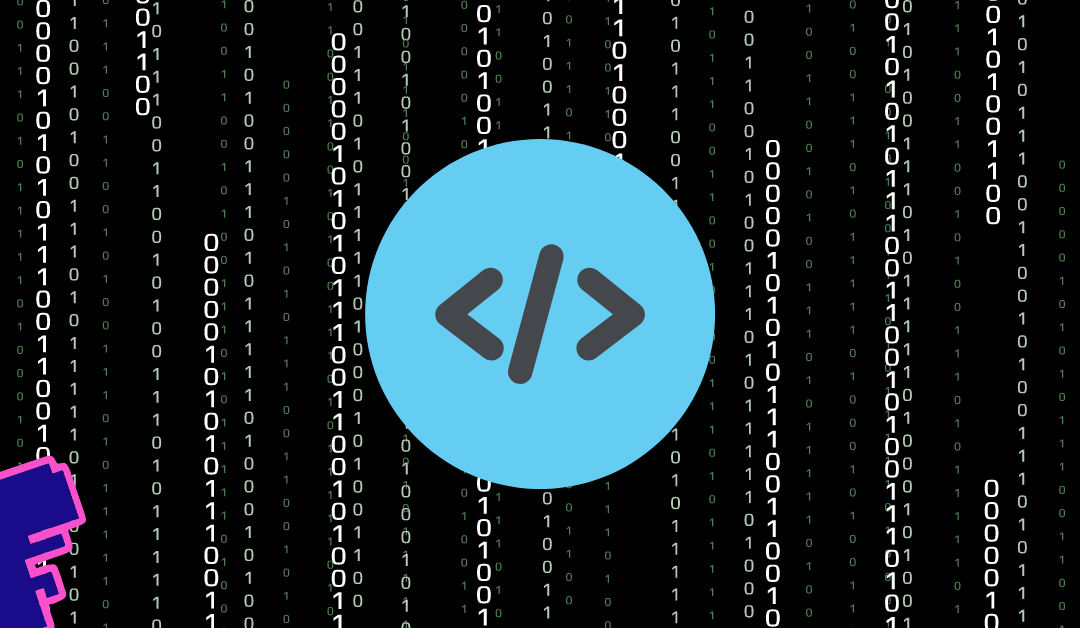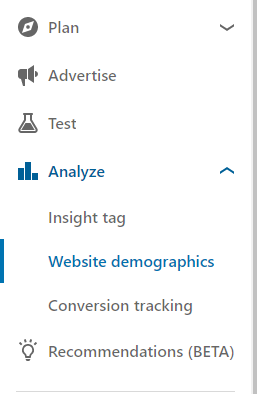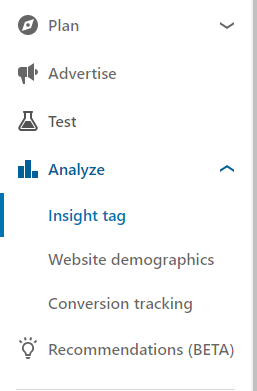
What is LinkedIn's Insight Tag? | How Do You Install the LinkedIn Insight Tag?


The very first thing you should do when starting LinkedIn Ads is install the LinkedIn Insight Tag.
This isn’t a suggestion, it’s a necessity.
But why? What is the Insight Tag and why is it so important?
WHAT IS LINKEDIN’S INSIGHT TAG?
The Insight Tag is LinkedIn’s equivalent to Meta’s and Google’s pixels (or tracking scripts).
The Insight Tag is a piece of JavaScript code that can be installed on a company’s website.
It collects and stores data on that company’s website traffic and sends that data back to the LinkedIn Ad account the tag was generated from.
WHAT CAN YOU DO WITH LINKEDIN’S INSIGHT TAG?
There are three things you can do with the Insight Tag properly installed:
- Track Conversions
Conversion tracking allows you to track specific actions taken on your website. For example, if someone lands on a certain page, submits a form, or clicks a button.
You can set the parameters of your conversions in LinkedIn Campaign Manager, but without the Insight Tag installed, LinkedIn has no way to tell when a conversion has taken place.
That’s because the Insight Tag sends a signal from your website back to Campaign Manager when a conversion event has occurred.
For example, say you send users to a Thank-You page on your website after they submit a form.
You can create and define a conversion in LinkedIn as anyone who lands on this Thank-You page.
If the Insight Tag is installed on the Thank-You page, LinkedIn will count a conversion whenever someone lands on that page. This action will be reflected in your Campaign Manager dashboard.
For more on how to set up conversion tracking, check out this episode of The LinkedIn Ads Show.
- Create Matched Audiences
A Matched Audience is a custom audience and can be used for retargeting, ABM, or to create a Lookalike.
One of the retargeting options available to you is website retargeting. This allows you to retarget anyone who has visited your website or even a specific page on your website.
Like conversion tracking, though, you can create a website retargeting audience without the Insight Tag installed, but LinkedIn won’t collect data to populate the audience unless it is.
And to take it a step further, LinkedIn can’t track website data retroactively.
So once both the Insight Tag is installed and a website retargeting audience is created in Campaign Manager, then LinkedIn will start building that audience.
Once it’s collected data on at least 300 individuals, then you can use your audience in a campaign.
That’s why it’s important to install the Insight Tag and create a website retargeting Matched Audience as soon as possible, even before starting to advertise.
If you want to learn more about Matched Audiences, check out this episode of The LinkedIn Ads Show.
- Get Free Website Demographic Data
This is an incredibly underutilized tool, in my experience. You don’t even need to be advertising on LinkedIn to be able to use it!
With the Insight Tag installed on your website, LinkedIn gives you insights into the types of people visiting your site.
This includes their job title, industry, level of seniority, and more.
First, create a Matched Audience based off of website traffic.
Then, click Analyze > Website Demographics in the left-hand navigation bar.

From here, you can select the Matched Audience you created from the “Website Audience” dropdown.
Just note that you’ll need to wait between the time your Matched Audience was created and once you’ve generated at least 300 unique visitors (that LinkedIn recognizes) to your site before data will populate here.
But it can be especially insightful if you want to target more people like those that visit your website because you can see the exact job titles and other criteria that those prospects match on the LinkedIn platform.
You can learn more about LinkedIn’s demographics tools on this episode of The LinkedIn Ads Show.
HOW TO INSTALL THE LINKEDIN INSIGHT TAG
Note that the Insight Tag will be unique for each ad account you manage (if you’re managing more than one).
To find the Insight Tag for your ad account, click Analyze in the left-hand navigation bar, then click Insight Tag.

From here, you have three options: You can choose to install the tag yourself, send the tag to a developer, or install via a tag manager.
The second option will allow you to send the tag directly to whoever’s email address is associated with the ad account.
This is convenient, but if the email address on the account doesn’t belong to your developer, you can just copy the tag (which you can do by clicking the first option “I will install the tag myself”) and paste it in a message to your developer.
If you choose to install the tag yourself, make sure it’s placed in your website’s global footer. Doing so will place the tag on every page across your site, giving you more options to track conversions and retarget.
If you choose to install the tag using a tag manager, you can find a list of compatible ones here, along with instructions on how to add it to your tag management system.
HOW TO TELL IF THE LINKEDIN INSIGHT TAG IS WORKING
Once you’ve installed the Insight Tag, how can you tell whether or not you did it properly?
There’s one of two ways: through Matched Audiences and through conversions.
-
Matched Audiences
If you have a website retargeting audience created, you can check to see if the Insight Tag is collecting data to build this audience by clicking Plan, then Audiences in the left-hand navigation bar.
Under the Status column next to your audience name, you’ll see that it either reads Last Signal Received or No Signal. If there’s no signal, the tag is improperly installed.
2/ Conversions
If you have a web conversion created, the process to check if the Insight Tag is working properly is almost identical to the previous method.
First, click Analyze in the left-hand navigation bar, then Conversion Tracking.
Under the Status column next to your conversion name, you’ll see that it can read Active, No Recent Activity, Inactive, and Unverified.
If your conversion is Unverified, the tag is improperly installed.
Note that, with either of these two options, it can take up to 24 hours after the tag has been installed before a signal is received on LinkedIn’s end.
FIRST STEPS
Installing the LinkedIn Insight Tag is the first step to LinkedIn advertising.
Without it, you limit yourself on tracking and targeting capabilities.
With it, you can better measure performance, implement holistic strategies with more targeting options, and gain deeper audience insights.
If you’re new to LinkedIn advertising and are wanting to delve into the platform, you can start by creating your account here.
PS: I love to see B2B marketers thrive and I believe they can with the right tools.
So we use audience micro-segmentation strategy (a data-driven approach) to optimize and scale your LinkedIn Ads. We’ll execute and manage it all for you.
Book a discovery call to get started today!